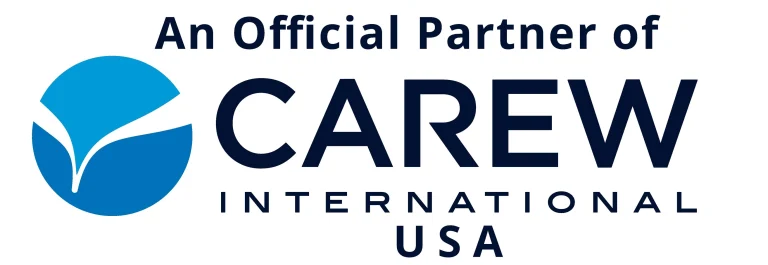The Sexual Harassment of Women at Workplace (Prevention, Prohibition and Redressal) Act, 2013, popularly known as the POSH Act, was passed by the Indian government in 2013. The Act requires an employer and an organization to take action to stop workplace sexual harassment events. The Act also specifies several requirements that organizations must meet to comply with. One of them involves using training programs and related initiatives to raise POSH knowledge among all employees about their roles and responsibilities within the company. Such training ought to be held at least twice a year.
For What Reason Does POSH Training Exist?
First and foremost, conducting POSH awareness training is required by law. The company may be subject to severe sanctions, such as an INR 50000 fine for first-time offenders and revoking a business license for those who repeatedly break the law. Furthermore, merely passing legislation is ineffective. Women frequently wonder if a specific action qualifies as sexual harassment even though it made them feel uneasy or violated. Therefore, it’s critical that workers understand what sexual harassment looks like in the workplace and what doesn’t.
Additionally, employees need to know what to do if a coworker is being sexually harassed. Effective POSH training for employees can resolve these problems. One step towards defending the rights of female employees and guaranteeing equality at work is to organize POSH training. All employees, regardless of gender or position, must receive training.
What Advantages Does POSH Offer?
Here is a list of additional advantages of holding POSH training for the company if you feel the reasons mentioned above are insufficient justification.
- Other employees’ productivity can be negatively impacted by sexual harassment in addition to that of the victims. Increased productivity and fewer instances of sexual harassment are correlated with better training.
- POSH instruction demonstrates that the company shows concern for its workers, which can boost engagement and job happiness.
- POSH training for employees raises the standard of workplace culture and increases employee retention. The training often improves employees’ perceptions of the company.
- An organization’s reputation and goodwill may suffer if employees choose to use social media to share their horrific experiences with sexual harassment. The company can also lose its clientele. Employee sensitization via POSH programs and courses helps protect the company’s brand and guarantee client retention.
- As previously stated, penalties may be imposed for failure to comply with the legislation. There’s also a risk that the legal battle will drag on for a while, which would have a significant financial impact. Regularly holding events for POSH awareness and training will not only aid in avoiding these legal entanglements. Still, they may also serve as evidence in court that the company took the appropriate precautions to stop regrettable instances of sexual harassment.
What ought to be taught in POSH training?
Training is required of all personnel in the company, including managers, directors, IC members, human resource specialists, and workers. However, one-size-fits-all instruction won’t be beneficial. A standard legal education program is crucial. Furthermore, role-specific training must be provided. For instance, members of the Internal Committee (IC, the body within the organization responsible for investigating and handling complaints of sexual harassment) are required to undergo specialized training on the investigation process and redressal mechanism. Let’s examine closely the kinds of things that you should consider for your company.
Course on Posh Foundations
This course will serve the entire workforce of the company. Every worker, regardless of gender or title, needs to have a thorough comprehension of the following:
- The definition of sexual harassment, as well as what sexual harassment includes and doesn’t.
- What rights do the complainant and responder have? What are they?
- What does the POSH Act mean for the workplace, employee, and employer?
- IC, its responsibilities, and the identities and contact information of IC members within their company.
- How to lodge a complaint
- The penalties for inappropriate sexual behavior
- Advice on avoiding virtual and online sexual harassment
- Things to remember to stop sexual harassment from occurring in personal relationships
- The consequences of maliciously filling a fake complaint
- The consequences of taking revenge
- The obligations of an individual who has observed harassment
- Employee obligations about stopping sexual harassment within the company.
POSH Training for Supervisors, Team Leaders, and Managers
A specific group of workers oversees a team and is responsible for ensuring that their teammates are safe. They could be business heads, people managers, reporting managers, human resources professionals, advocates for diversity and inclusion (D&I), etc. Thanks to the POSH training, they must be able to properly handle and manage instances of sexual harassment. Any improper action or carelessness by the people manager will have dire repercussions for the team, the victim, and the organization.
Ideally, managers should receive training on POSH that includes:
- The primary duties of leaders in the event of a sexual harassment occurrence
- Actions to impartially record the complaint
- Assisting the IC in its investigation
- Actions to Take After Inquiry
- Preventive actions that can be performed to avoid regrettable events
POSH Instruction for Members of Internal Committees
According to the POSH Act, any company with more than ten workers, including interns and temporary contract workers, must form an internal committee with the same authority as a civil jury. They will address POSH problems.
The following topics need to be covered in the IC members’ training:
- The responsibilities of an IC
- The credentials of the IC members
- The standards for disqualifying an IC member should the situation arise
- The processes involved in submitting a complaint and the subsequent protocols
- The procedure of inquiry and conciliation
- Distinguishing between gender-based discrimination and sexual harassment
- The Internal Committee’s jurisdiction
- The interviewing process that is necessary for the inquiry
- The due date for finishing the investigation and submitting the report
- The suggestions to be made following the investigation
- Putting together the inquiry report and the information that will be in it
- Creating and sending the annual report for POSH
The Internal Committee must be adequately enabled because it is essential to the organization’s goal of eliminating sexual harassment in the workplace. The POSH Annual Subscription Program for IC Members is a fantastic choice. The extensive package specially selected for them will provide IC members with training in their roles and responsibilities.
In conclusion
POSH training is not only a skill development endeavor but also a legal duty and necessity. Regular refresher Posh Awareness Training sessions by B-More Consulting must be held to accomplish this goal. Although female employees are the primary beneficiaries of POSH training, the organization as a whole and the workforce may also benefit from this training.
B-More Consulting’s posh awareness training program will analyze, evaluate, and offer solutions while keeping in mind the needs and objectives of the Act, enabling your business to get the most out of this legislation.





